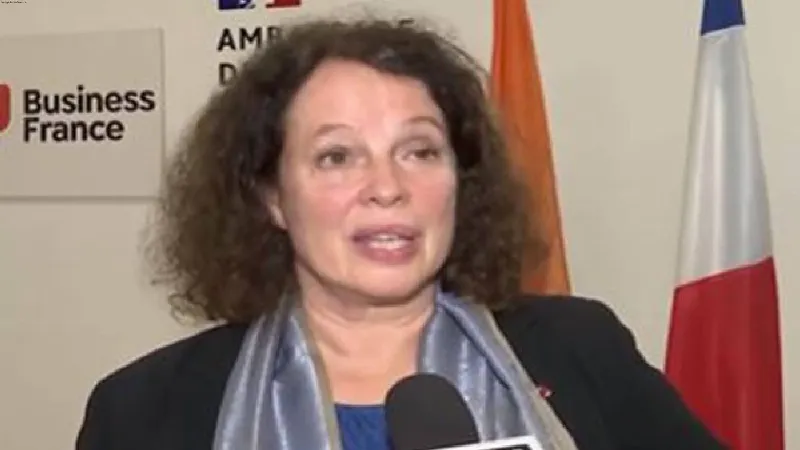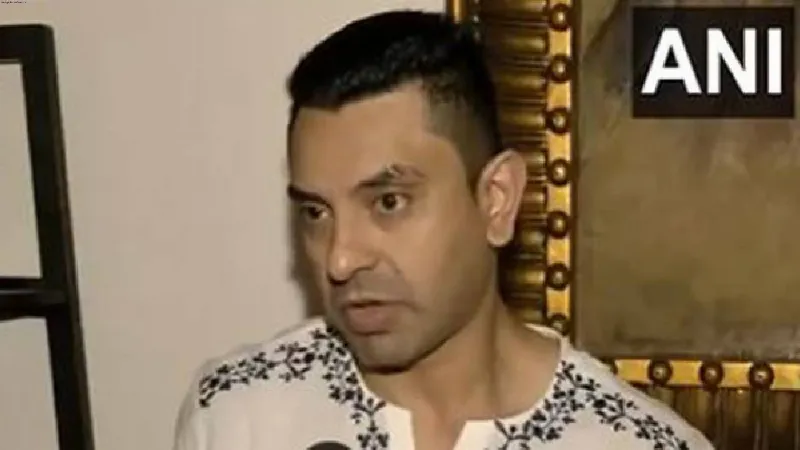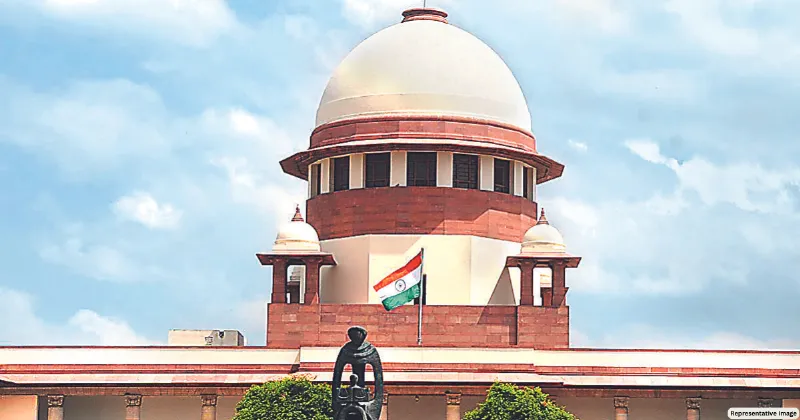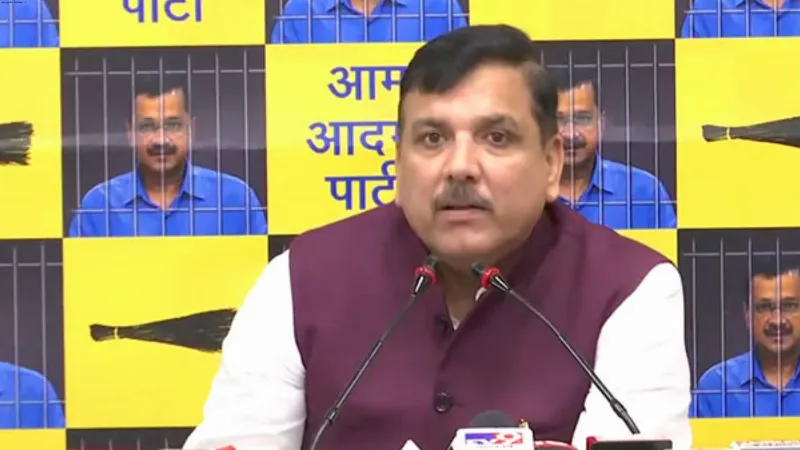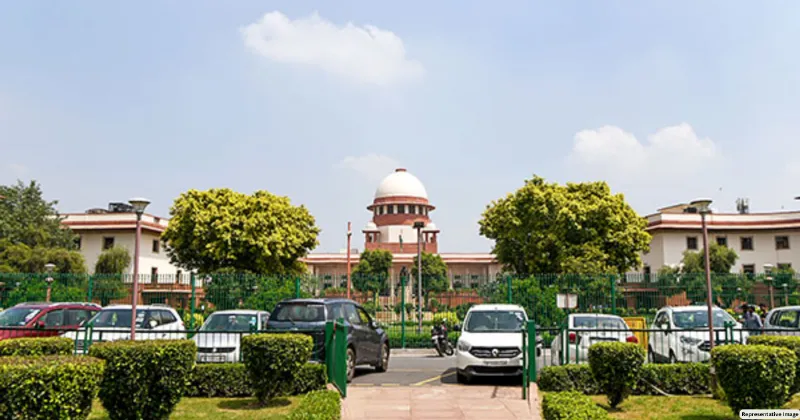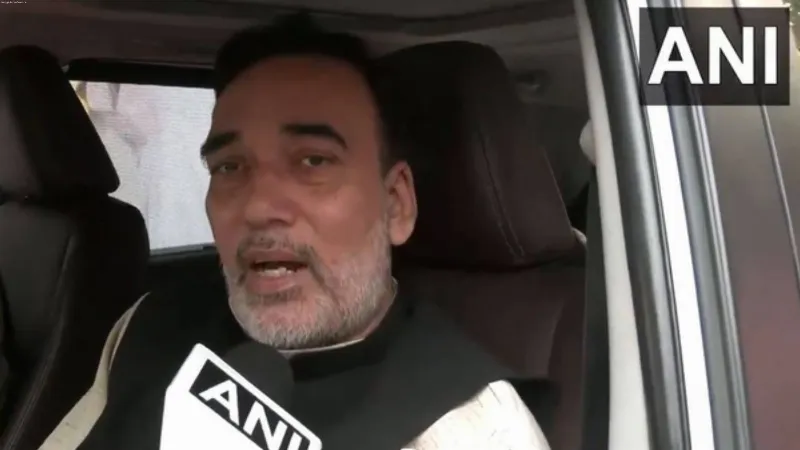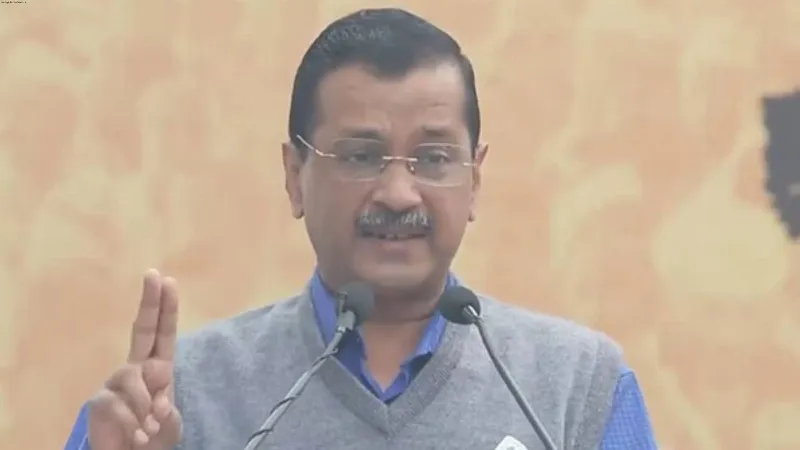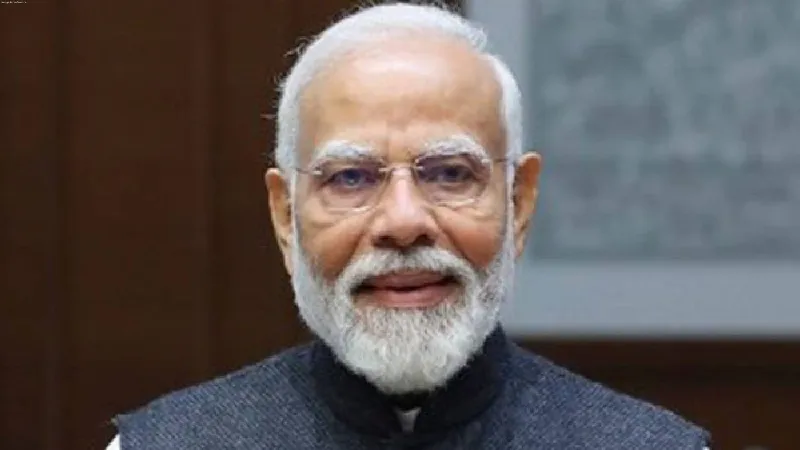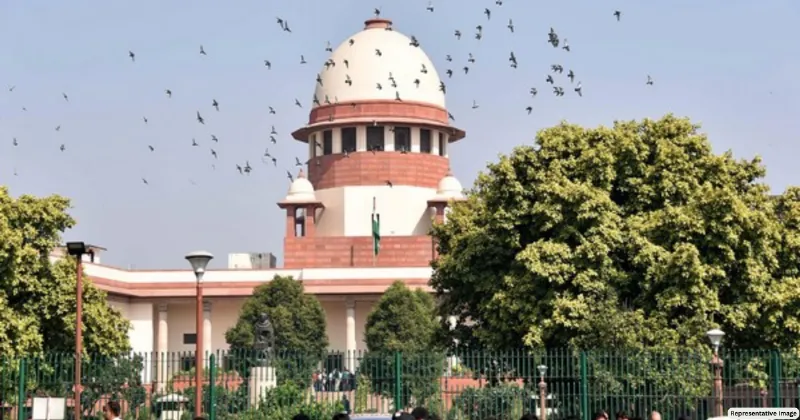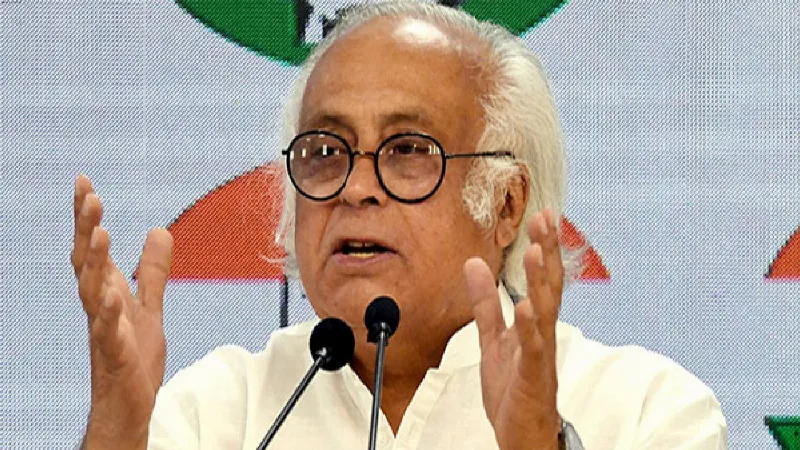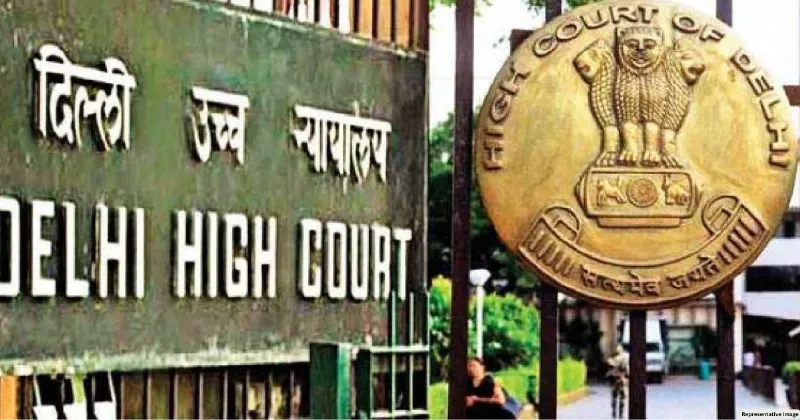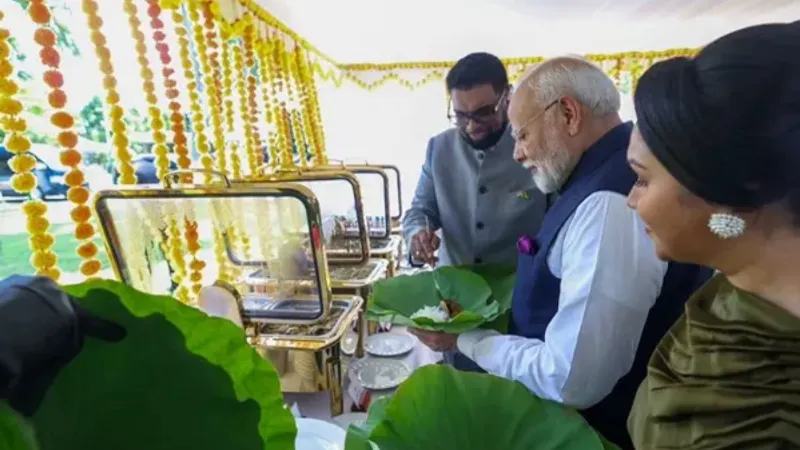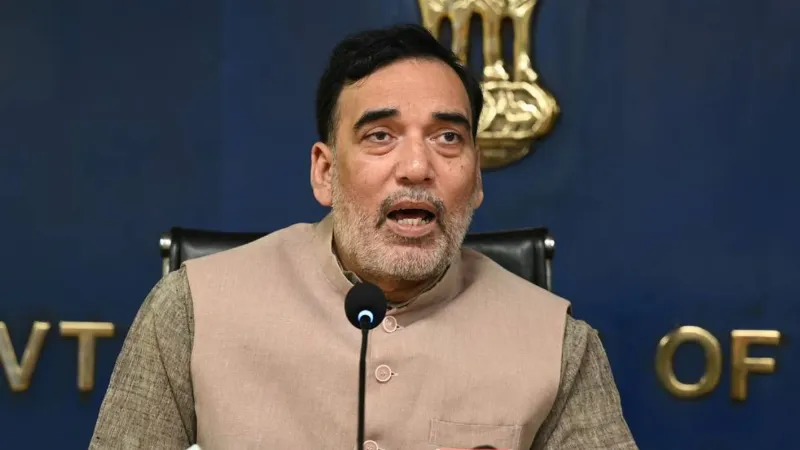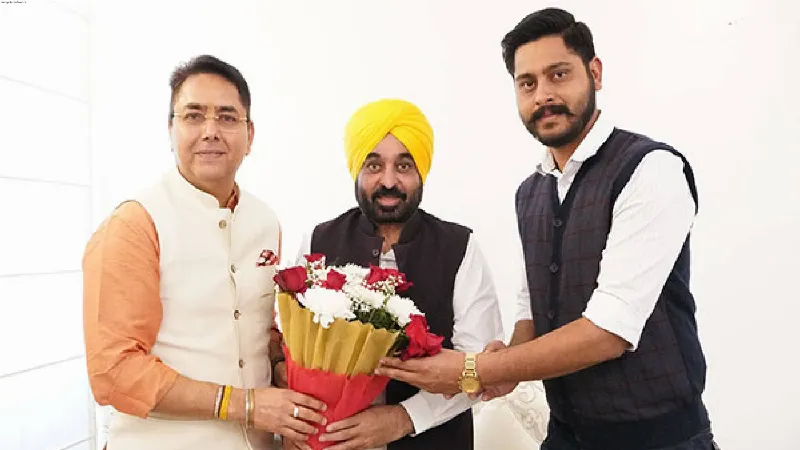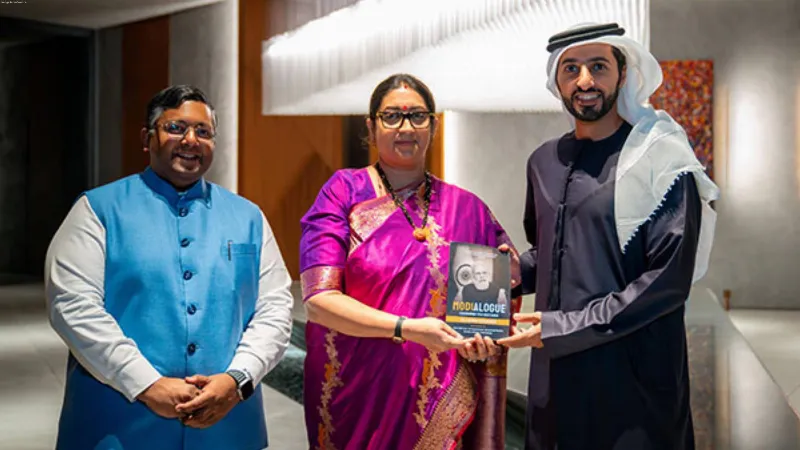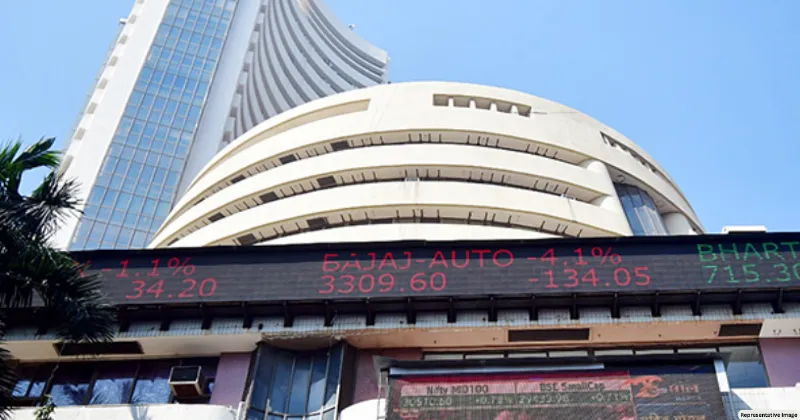2014 not a date but a change of era: PM Modi

New Delhi: Prime Minister Narendra Modi on Friday launched a fresh broadside against Congress as he termed 2014 not just a date but a 'badlav' (change) as he touted reforms by his government that have transformed the landscape of the country.
Speaking at the India Mobile Congress here, Modi reeled out statistics to show how India has turned into an exporter of mobile phones from being an importer and how big tech companies -- from Apple to Google -- are lining up to become manufacturers in the country.
He said after the fastest rollout of 5G mobile telephony services, India will lead the world on 6G.
"2014 is not just a date. It is 'badlav' (change)," he said.
Recalling the launch of 5G technology in the country on October 1 last year, he remarked that within a year there are about 5 lakh 5G base stations across the country.
"Everyone knows what happened during the 2G (telecom spectrum allocation during the UPA government). During our government, 4G was expanded but there was no stain on us," he said. "I am confident that India will lead the world in 6G technology." Modi took swipes at the Congress-led UPA, saying just like outdated phones whose frozen screens won't work no matter how many swipes were done or buttons pressed, the previous government too was in such a perpetual frozen state.
"A restart, or charging the battery or even changing the battery did not work," he said.
The same was true for the government of that time, he said. "The Indian economy and the then government were in the perpetual hang or frozen mode." "In 2014, people gave up such outdated phones and gave us an opportunity to serve the country," he said.
Modi said the coming to power of his government led to a sea change - "At that time we were importers of mobile phones. Now we are an exporter of mobile phones. At that time our presence in mobile manufacturing was negligible. Now we are the world's second biggest mobile phone manufacturer. Then there was no clear vision on electronics manufacturing. Today we are exporting around Rs 2 lakh crore worth of electronics." Recently, Google announced that they will make their Pixel phones in India. This comes on the back of Samsung already making its Fold-5 and Apple manufacturing iPhone-15 in India, he said. "Today we all are proud that the entire world is using made in India mobile phones." India Mobile Congress (IMC) is the largest telecom, media, and technology forum in Asia. The IMC 2023 aims to strengthen India's position as a developer, manufacturer, and exporter of key cutting-edge technologies. During the programme, the prime minister awarded 100 '5G Use Case Labs' to educational institutions across the country.
Modi said the 5G rollout surprised the world. "India moved from the 5G rollout stage to 5G reach out stage," he said.
Within one year of 5G rollout, the prime minister said 4 lakh 5G base stations, which cover more than 97 per cent of the cities and 80 per cent of the population, have been installed.
The speed of median mobile broadband speeds have increased 3 times within one year and India moved from the 118th position to the 43rd position in terms of broadband speed. "India is not only expanding the 5G network in the country but also laying emphasis on becoming a leader in 6G," he said.
He said beyond ranking and numbers, improvement in internet connectivity and speed leads to enhanced ease of living. He narrated the benefits of improved connectivity and speed in education, medicine, tourism, and agriculture.
"We believe in the power of democratization. The benefit of development should reach every section and region, everyone should benefit from the resources in India, everyone should have a life of dignity and the benefit of technology should reach everyone. We are working rapidly in this direction," he said. "For me, this is the biggest social empowerment." He went on to state that "access to capital, access to resources and access to technology" is a priority for our government. Collateral-free loans under the Mudra scheme, access to toilets, and DBT through JAM Trinity are steps in that direction.
The prime minister emphasized that India's startup ecosystem has made a significant place for itself in the world in the last few years. "India has made a century of unicorns in fairly less time and has now become one of the top 3 startup ecosystems in the world." Before 2014, India was home to only a few hundred startups which have now grown to about one lakh.
Prime Minister Modi also touched upon the 'Aspire' programme, an initiative by the IMC to mentor startups in the country and exuded confidence that the step will hugely benefit the youth of India.
He stressed on the need to take the success in mobile and electronics manufacturing even further. "For the success of both hardware and software in the tech ecosystem, it is important that we build a strong semiconductor manufacturing sector in India," he said, adding the Rs 80,000 crore PLI scheme is going on for the development of semiconductors.
Today, semiconductor companies around the world are investing in semiconductor assembly and testing facilities in collaboration with Indian companies.
India's semiconductor mission is moving forward with the vision of meeting not only its domestic demand but also the needs of the world, he added.
Prime Minister Modi also highlighted threats from cybersecurity and the safety of network infrastructure.
He lamented the missed opportunities when it came to the adoption of new technologies in the past.
"This period of the 21st century is the time of India's Thought Leadership," he said and urged thought leaders to create new domains which can be followed by others.
He gave the example of the UPI which is leading the entire world in the digital payments system today. "India has the power of young demography and the power of vibrant democracy." The 100 5G labs initiative is an endeavour to realize the opportunities associated with 5G technology by encouraging the development of 5G applications which cater, both to India's unique needs as well as the global demands.
The unique initiative will foster innovation across various socioeconomic sectors like education, agriculture, health, power, transportation etc, and propel the country into the forefront of usage of 5G technology.

